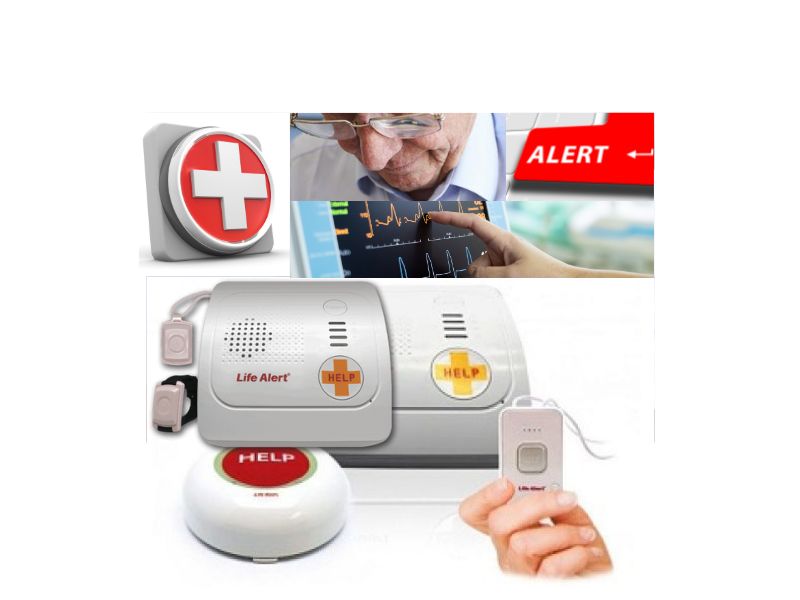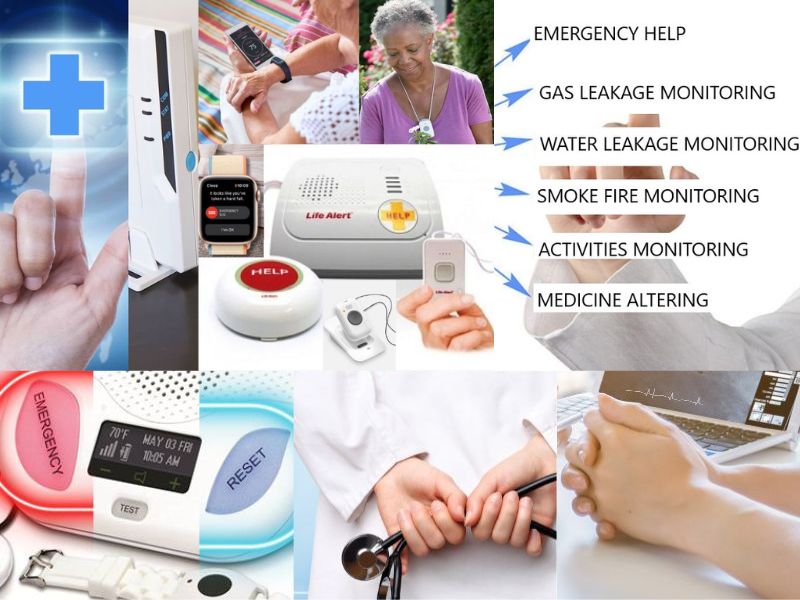Does Medicare Pay for Any Life Alert Systems?
Unfortunately, Medicare does not cover the cost of Life Alert systems. Life Alert systems are considered non-medical equipment, meaning Medicare does not cover them.
However, some Medicare Advantage plans may cover the cost of Life Alert systems. Private insurance companies offer these plans and must cover all of the same services that Original Medicare covers. Some Medicare Advantage plans may offer additional benefits, such as coverage for Life Alert systems. If you have a Medicare Advantage plan, you should check with your plan to see if they cover the cost of Life Alert systems. You must follow their specific guidelines for getting the system if they do.

For the elderly, disabled, or chronically ill, life alert systems can provide incredible peace of mind and a sense of security. But as with other medical services and products, these outstanding devices can come at a steep cost that may leave many on fixed incomes unable to afford them.
We’ll discuss the Life Alert system more to help keep yourself or your loved ones safe without breaking the bank!
What is a Life Alert System?
A Life Alert system is a personal emergency response system that provides 24/7 monitoring and assistance to seniors and people with disabilities. The system consists of a wearable device, such as a pendant or wristband, equipped with a button that can be pressed to summon help in an emergency.
When the button is pressed, a signal is sent to a monitoring center, where trained professionals can assess the situation and dispatch emergency services if necessary. Life Alert systems can also include fall detection, medication reminders, and activity monitoring.
What is Medicare?
Medicare is a federal health insurance program that covers people over 65 and those with specific disabilities or chronic conditions. The program is divided into four parts: Part A, Part B, Part C, and Part D.
- Part A covers inpatient hospital stays, skilled nursing care, hospice care, and home health care.
- Part B covers doctor visits, outpatient care, medical equipment, and supplies.
- Part C, also known as Medicare Advantage, is an alternative to traditional Medicare offered by private insurance companies.
- Part D covers prescription drugs.
Types of Life Alert Systems
There are several types of Life Alert systems available. Here are some of the most common types:

Home-Based Life Alert Systems
These systems are designed to be used in the home. They typically consist of a base unit that connects to a phone line and one or more wearable buttons that can be pressed to call for help.
Mobile Life Alert Systems
These systems are designed to be used outside the home. They typically consist of a wearable device that can be carried with you and a base unit that connects to a call center.
Fall detection Life Alert Systems
These systems are designed to automatically detect if you have fallen and call for help if you cannot press the button.
Other Options for Paying for a Life Alert System
If Medicare does not cover the cost of a Life Alert system, other options are available for paying for the device. One option is to purchase the system outright or finance it through the manufacturer.
Another option is to look into state or local programs that assist with the cost of medical alert systems. Some programs may offer grants or low-interest loans to help cover the cost of the device.
Finally, some non-profit organizations may offer assistance with the cost of Life Alert systems or similar devices. These organizations can provide financial aid or connect you with resources in your community.
Alternative Ways for Seniors Who Need Help in an Emergency
Other options are available if you are a senior who needs help in an emergency but cannot afford a Life Alert system. Here are a few:
- Medical alert jewelry: Medical alert jewelry is a wearable device that can be engraved with your medical information and emergency contact information. If you have a medical emergency, first responders can look at the jewelry to get the information they need to help you.
- In-home caregivers: If a caregiver comes to your home regularly, they can be your first line of defense in an emergency. Make sure they know how to call for help if needed.
- Community resources: Many communities have resources available for seniors who need help in an emergency. Check with your local senior center or Area Agency on Aging for available resources.

Frequently Asked Questions
Is there a fee associated with using Life Alert services?
Yes, there is a monthly service fee for using any Life Alert Emergency Response System. The exact price will vary depending on the specific plan and equipment chosen. In addition, some plans may include an activation fee. Medicare does not cover these fees. However, additional assistance may be available through programs such as Medicaid or other state-funded initiatives. You should contact your local Medicaid office to inquire about any possible discounts or subsidies you may qualify for.
Does Life Alert offer payment plans?
Yes, some plans offered by Life Alert include flexible payment options. Depending on your plan, you can spread out your payments over several months or adjust the amount due depending on your budget. Additionally, Life Alert offers discounts when purchasing a long-term monitoring service agreement.
Are there any other costs related to using Life Alert?
Yes, some plans may include additional expenses, such as installation costs and the cost of replacement batteries. Medicare does not cover these costs, but you may be able to find assistance through various programs such as Medicaid or other state-funded initiatives.
Are there any special considerations for seniors when using Life Alert?
Yes, many Life Alert plans are specifically tailored to meet the needs of seniors. These plans may include additional features such as medical alert buttons, fall detection sensors, and other specialized services designed to help keep seniors safe and secure. Additionally, Life Alert offers discounts on long-term monitoring service agreements for seniors.
